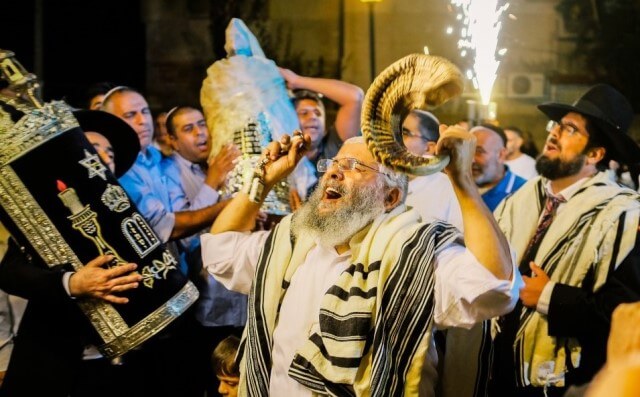
In Mizmor LeTodah, an exuberant psalm of thanksgiving, the psalmist explains how to deepen our sense of gratitude and thankfulness, and feel real joy in serving God:
“דְּעוּ כִּי ה’ הוּא אֱ-לֹהִים. הוּא-עָשָׂנוּ, ולא [וְלוֹ] אֲנַחְנוּ , עַמּוֹ וְצֹאן מַרְעִיתוֹ.” (תהילים ק:ג)
“Know that Hashem is God. He created us and we are His — His people, and the sheep of His pasture.” (Psalm 100:3)
What does it mean that “Hashem is God"?
The first step in serving God in joy is to recognize God’s infinite greatness. This is a boundless greatness that transcends all boundaries and limits. No law of nature can hold back the abundant shefa of God’s kindness from spreading in the world.
Together with this recognition, we need to be aware of our deep inner connection to God. Despite His incomparable loftiness, God relates to His creations with endless care and concern.
The psalmist uses the holiest Divine Name, the Tetragrammaton. This sacred name indicates God’s eternal holiness, a holiness that is beyond the boundaries of time and place. Awareness of God’s transcendent nature, however, makes one wonder: how could creatures like ourselves, sunk in the morass of ignorance and impurity, be connected to such incomparable holiness?
Therefore, the psalmist declares: “Hashem is God (Elokim)!” Despite His infinite transcendence, beyond human thought and understanding, He is nonetheless Elokim — the One Who established the laws of nature and Who governs the universe. God relates to His finite creatures with great love and care.
Constant Connection to God
“He created us.” It is not difficult to realize that creation ex nihilo logically requires a Creator. But a flawed perception could lead one to only consider a one-time creation — and not an ongoing, continual creation. If we are unaware of God’s continual perpetuation of the universe, we will lack appreciation for our constant dependence on God’s kindness and our ongoing connection with God. This faulty perception will certainly dilute our gratitude and joy in serving God.
Therefore, we note that not only “God created us,” but also, “we are His.” God’s relationship with the universe did not end with its initial creation. We are constantly and continually God’s creations.
The verse’s written form highlights this message. While the verse is read, “we are His,” it is written, “we are not.” Were it not that “God created us” — were it not for God’s continuous creation at each moment — “we are not.” We would not exist if God did not constantly sustain the world.
Universal and Personal Connections
Our connection to God is ingrained throughout the universe. These bonds exist on many levels: those with all of creation, and those with all of humanity. And, of course, God’s special connection with the faith-community of Israel — “His people.”
Yet these universal and national connections do not detract from God’s care of each individual. We are “the sheep of His pasture.” We all belong to the Shepherd’s flock; each of us benefits from God’s providence.
Reflecting on these truths, our joy in serving God soars. “Serve the Eternal with joy; come before Him with praise!”
(Adapted from Olat Re’iyah vol. I, pp. 221-222)





